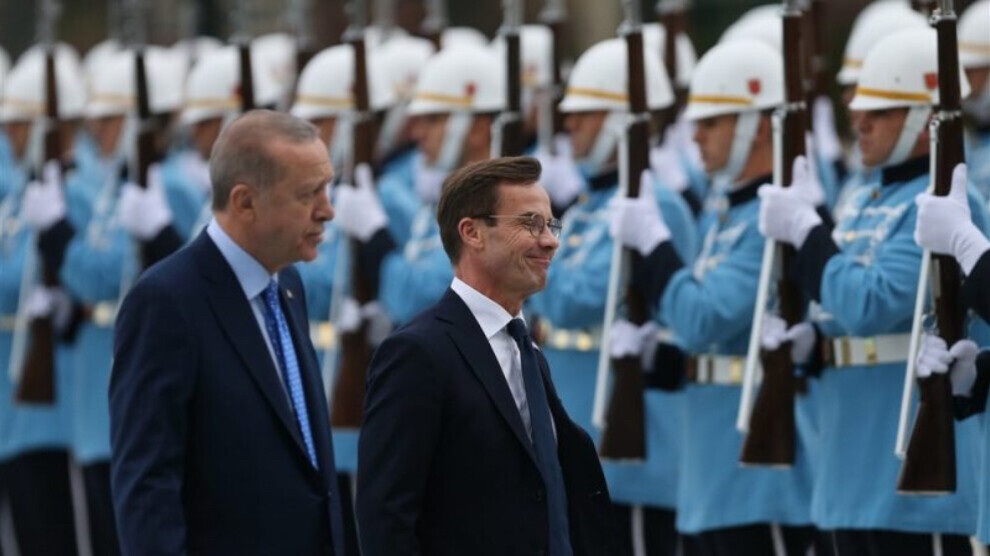Sweden works hard to win Turkey’s support for NATO bid
With the change of government in Stockholm, a new dimension in Sweden's anti-Kurdish criminalisation policy is emerging.
With the change of government in Stockholm, a new dimension in Sweden's anti-Kurdish criminalisation policy is emerging.

The new Swedish government wants to extract an endorsement from the Turkish regime for its aspired NATO accession by making concessions on anti-Kurdish policies.
Foreign Minister Tobias Billström said on Thursday that he would shortly go to the Turkish capital Ankara this autumn “to continue discussions with my counterparts there”.
“Sweden will continue its dialogue with Turkey to overcome objections raised by Ankara over its application to join the NATO alliance,” Billstrom told reporters in Berlin after meeting his German counterpart on Thursday.
"I think the discussions are continuing in a very positive way," he noted.
Billstrom said discussions would continue on all levels, while discussions between authorities in Sweden, Turkey and Finland would continue at the same time.
The Swedish Prime Minister Ulf Kristersson visited Ankara on 8 November and promised to answer Turkey’s concerns, which are directly aimed at the Kurds.
The Swedish Parliament is expected to make a constitutional amendment next week to “toughen counter terrorism” in an attempt to meet Ankara’s anti-Kurdish demands.
Experts are of the opinion that this action will especially smooth the way for investigations against the Kurds.
Minister Billström said in a radio interview on Saturday about the Kurdish Democratic Unity Party (PYD) and the People's Defence Units (YPG) active in Rojava (northern Syria) that their links to the Kurdistan Workers' Party (PKK) were "too close to be good for relations between us and Turkey". His government's main goal, he said, was Sweden's NATO membership. Billström thus signalled his willingness to add a new dimension to the criminalisation policy against the Kurdish people that has been in place in the Nordic country for decades.
Both Sweden and Finland are seeking to join NATO in view of the Russian invasion of Ukraine. This requires ratification by all 30 member states of the defence alliance. While 28 members have already agreed to join, Turkey and Hungary have yet to approve.
Turkish regime leader Recep Tayyip Erdoğan has refused to allow Sweden and Finland to join NATO, citing both countries' alleged support for Kurdish organisations that Ankara considers "terrorist". Then, at the end of June, the three countries signed a memorandum of understanding designed to overcome Turkish objections. Turkey's demands also included the lifting of the Swedish arms embargo and the extradition of opposition members. However, a final agreement has not yet been reached.
Sweden saw a change of government in the autumn. The country is governed by a centre-right coalition. The new Prime Minister, Ulf Kristersson of the conservative Moderate Party, has formed a minority coalition with Christian Democrats and Liberals, supported by the right-wing populist Sweden Democrats. Kristersson asked Erdoğan for a meeting regarding NATO accession at the end of October.